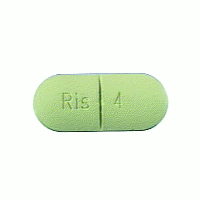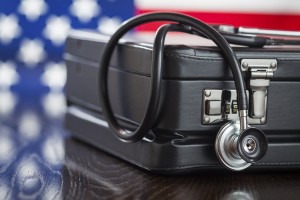
Shellers Honored at Mural Arts Philadelphia’s 2021 Wall Ball
Stephen and Sandy Sheller were honorary attendees at Mural Arts Philadelphia’s 2021 Wall Ball, The Art of Wellbeing. Held virtually June 10, 2021 at 6:00

Stephen and Sandy Sheller were honorary attendees at Mural Arts Philadelphia’s 2021 Wall Ball, The Art of Wellbeing. Held virtually June 10, 2021 at 6:00

Johnson & Johnson is out of options after the U.S. Supreme Court declined to hear the pharmaceutical company’s appeal of a $70 million Risperdal verdict.

When executive compensation is tied solely to short term profits, and not balanced against company payouts for wrongdoing, there’s an increased incentive for executive fraud.
Byetta and Januvia are popular drugs used to treat people with diabetes. Byetta is a prefilled injection that contains the active ingredient exenatide, a type of medicine called an incretin mimetic that controls the blood sugar levels by encouraging an increased production of GLP-1 (glucagon-like peptide 1). Januvia, an orally administered drug, contains a chemical compound called sitagliptin phosphate, an orally-active inhibitor of the dipeptidyl peptidase-4 (DPP-4) enzyme. Preliminary studies link approved diabetes drugs, Byetta (Exenatide) and Januvia (Sitagliptin) to pancreatitis, pancreatic and thyroid cancer and altered kidney function.
February 25, 2013: Januvia and Byetta may double the risk of developing an inflammation of the pancreas linked to cancer and kidney failure according to the Bloomberg news report “Merck, Bristol Diabetes Drugs Linked to Pancreatitis Risk”
In 2007, the FDA issued a public health alert warning doctors and patients that Byetta “has been linked to approximately 30 cases of serious side effects, including pancreatic problems.” The FDA stated that “From April 2005 through October 2008, FDA received 78 cases of altered kidney function (62 cases of acute renal failure and 16 cases of renal insufficiency), in patients using Byetta.”
The FDA issued this warning on Januvia: “Eighty-eight post-marketing cases of acute pancreatitis, including two cases of hemorrhagic or necrotizing pancreatitis in patients using sitagliptin, were reported to the Agency between October 16, 2006 and February 9, 2009.”
“The FDA has received numerous reports that patients using Januvia or Byetta have developed pancreatic cancer. When compared to patients using other treatments, there is a 2.9-fold increase in reported cases of pancreatic cancer from those taking Byetta and a 2.7-fold increase of reported pancreatic cancer from Januvia users, according to a study at the University of California, Los Angeles.”
The FDA has required the manufacturers of these drugs to put warning labels on all containers, but to date, Byetta and Januvia remain on the market.
Confab reviews safety of diabetes drugs like Merck’s Januvia, Novo’s Victoza, by Eric Palmer, Fierce Pharma, June 12, 2013
Merck, Bristol Diabetes Drugs Linked to Pancreatitis Risk, by Shannon Pettypiece, Bloomberg News, February 25, 2013
Byetta and Januvia: More Debate About the Possible Increased Risk of Pancreatitis, Pancreatic Cancer and Thyroid Cancer, by Tom Lamb, DrugInjuryWatch.com, November, 2011
IF YOU OR ANYONE YOU KNOW HAS TAKEN BYETTA OR JANUVIA AND SUFFERED FROM ANY OF THE ABOVE SIDE EFFECTS OR OTHER SERIOUS SIDE EFFECTS, CONTACT THE SHELLER, P.C. DEFECTIVE DRUG AND MEDICAL DEVICE INVESTIGATIVE TEAM AT 800-883-2299, OR FILL OUT A CONFIDENTIAL FORM BELOW.
Sheller, P.C.
1515 Market Street, Suite 1100
Philadelphia, PA 19102
Phone: 215-790-7300
info@sheller.com




